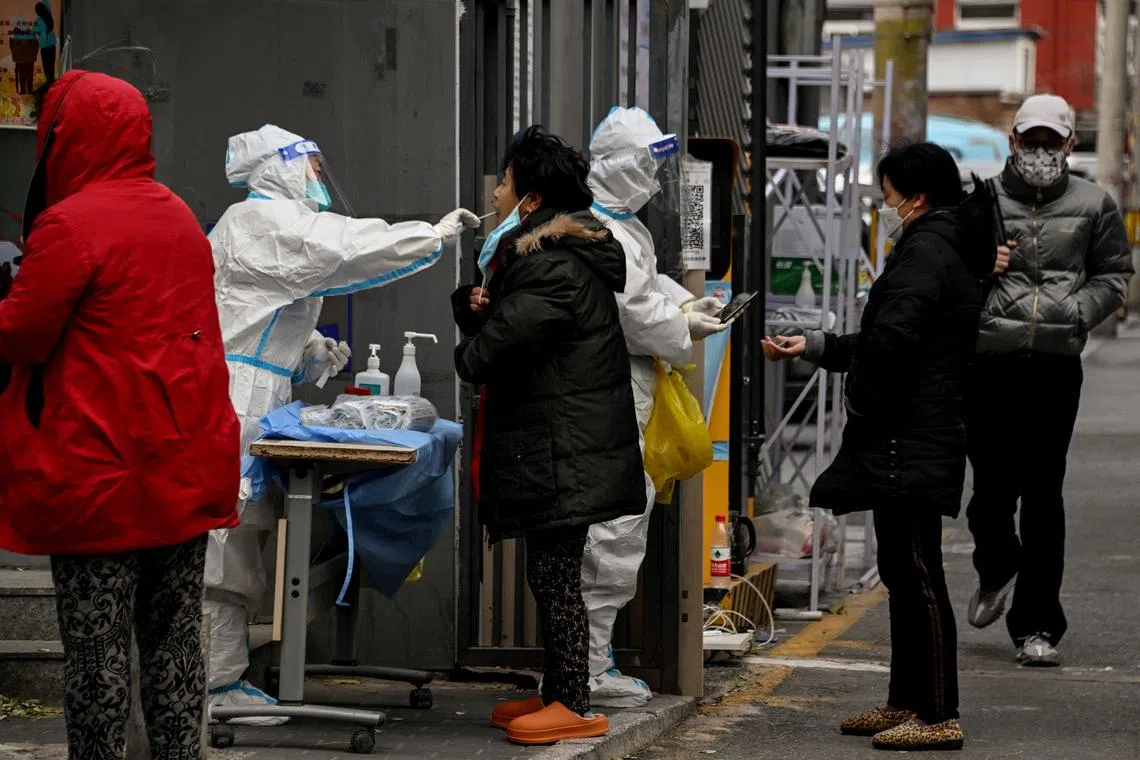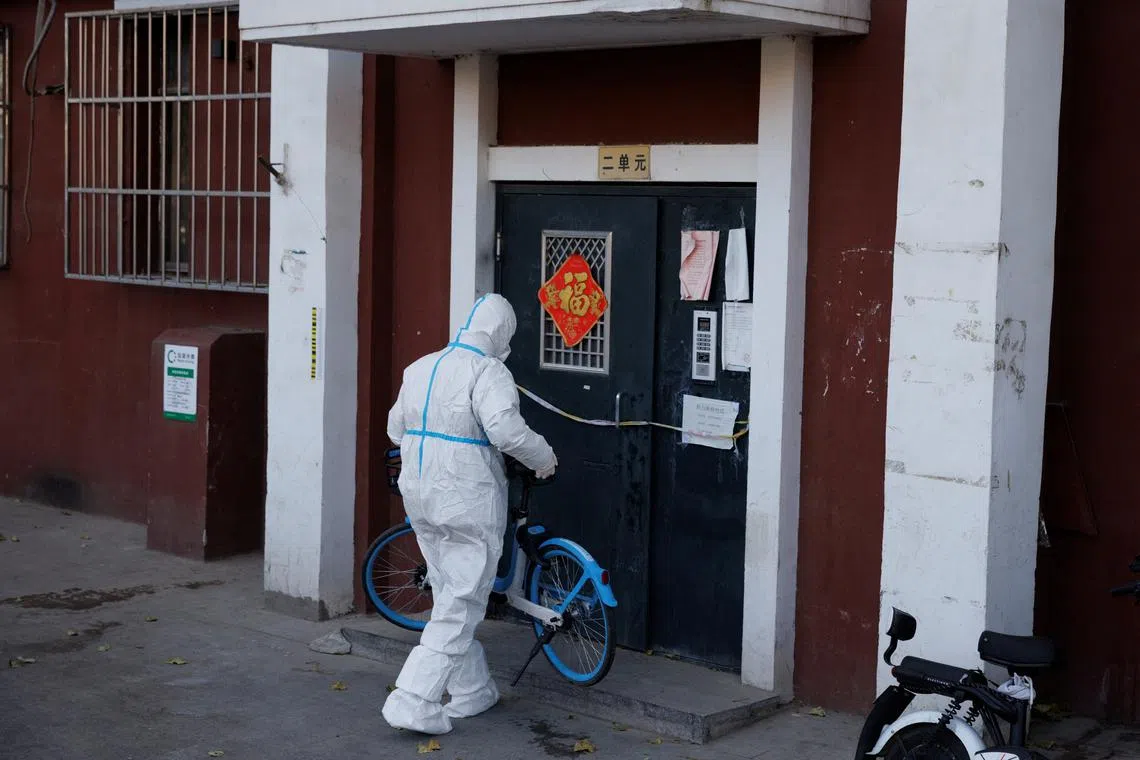More signs that China could be further dialling back Covid-19 measures
Sign up now: Get insights on Asia's fast-moving developments

The total number of infections are still a relatively small number for a city of 22 million people.
PHOTO: AFP
BEIJING - Several Chinese cities have announced the easing of some Covid-19 measures, including scrapping mandatory testing for certain groups and allowing home quarantine for some.
This is yet another sign that China might be further dialling back harsh measures that have fuelled widespread protests.
Vice-Premier Sun Chunlan, who oversees the country’s Covid-19 response, also said the fight against the virus is entering a new phase, with the Omicron variant causing less severe illness, significantly softening her previous stance.
During meetings with health officials on Wednesday and Thursday, she notably did not use the phrase “dynamic zero-Covid-19”, according to an official account of the talks.
“With the weakening of the pathogenicity of the Omicron variant, increasing vaccination, and the accumulation of experience in prevention and control, the country’s epidemic prevention and control are facing new situations and new tasks,” she told a meeting at the National Health Commission on Wednesday.
She repeated similar remarks the next day, also noting that it is possible to be “taking small steps without stopping” while improving policies.
China had 35,800 new infections on Wednesday, with 31,720 of them asymptomatic. Most appear to stem from southern Guangdong province and Chongqing, the south-western city that has been under de facto lockdown for the better part of a month.
Relying heavily on mass testing and harsh lockdowns, China has firmly stuck to variations of what it calls “dynamic zero-Covid-19”
But residents weary of repeated disruptions to their lives have started to chafe at it.
Even as case numbers remain high, there has been a flurry of announcements in various cities on the easing of control measures – an apparent acknowledgement of frustrations that have boiled over into physical protests over the weekend in major cities.
Cities such as Beijing, Chongqing and Guangzhou have said those who do not frequently leave the house do not have to take part in regular mass testing. Currently, mass testing is conducted whenever there is a spike in cases.
Manufacturing hub Guangzhou, which saw clashes between police and protesters on Tuesday night,
The city has restarted dining in, with restaurants scrambling to restock and reopen.
Residents told The Straits Times that in some districts, officials appeared to be rushing to take down barriers erected around residential compounds when the lockdown was ordered.
In Chongqing, where cases have been increasing by the thousands daily, residents have been confined to their homes for nearly a month, with only essential businesses allowed to operate.
“The government has delivered on its promise that our necessities will be met, because we do have food and water, and we are safe,” said Ms Xia Xia, 27, who owns a craft beer bar in Yuzhong district.
“But there is no money to be made, especially not for people like us who run non-essential businesses. We can’t even open, and even when we can, who’s going to spend unnecessary money in this economic environment?”
In some cities, close contacts of positive cases will be allowed to quarantine at home if conditions are met, rather than in centralised quarantine facilities, which have gained a reputation for being crowded and unsanitary.
The temporary facilities that have been built quickly have been a huge point of contention, with many who test positive pushing back against going there. Over the past weeks, residents in many areas have rallied together, signing petitions asking for neighbours who are infected to be allowed to recover at home.
According to a notice seen by The Straits Times, at least one sub-district in Beijing has finally given in, allowing those who test positive to stay home. But ST could not independently verify the document.
In the past month, China has reduced quarantine for inbound travellers from 10 days to eight.

A pandemic control worker uses a bicycle to block the door to an apartment building under lockdown in Beijing on Nov 30, 2022.
PHOTO: REUTERS
State media and officials have also shifted from demonising the virus to portraying it as little more than the flu.
Beijing News on Thursday quoted an infectious diseases expert from the Third Affiliated Hospital of Sun Yat-sen University as saying that Covid-19 does not result in long-term effects.
“At present, the academic community has not confirmed that there are long-term effects of Covid-19,” he said, adding that those who exhibit symptoms long after testing negative simply have a “longer manifestation of clinical symptoms”.



